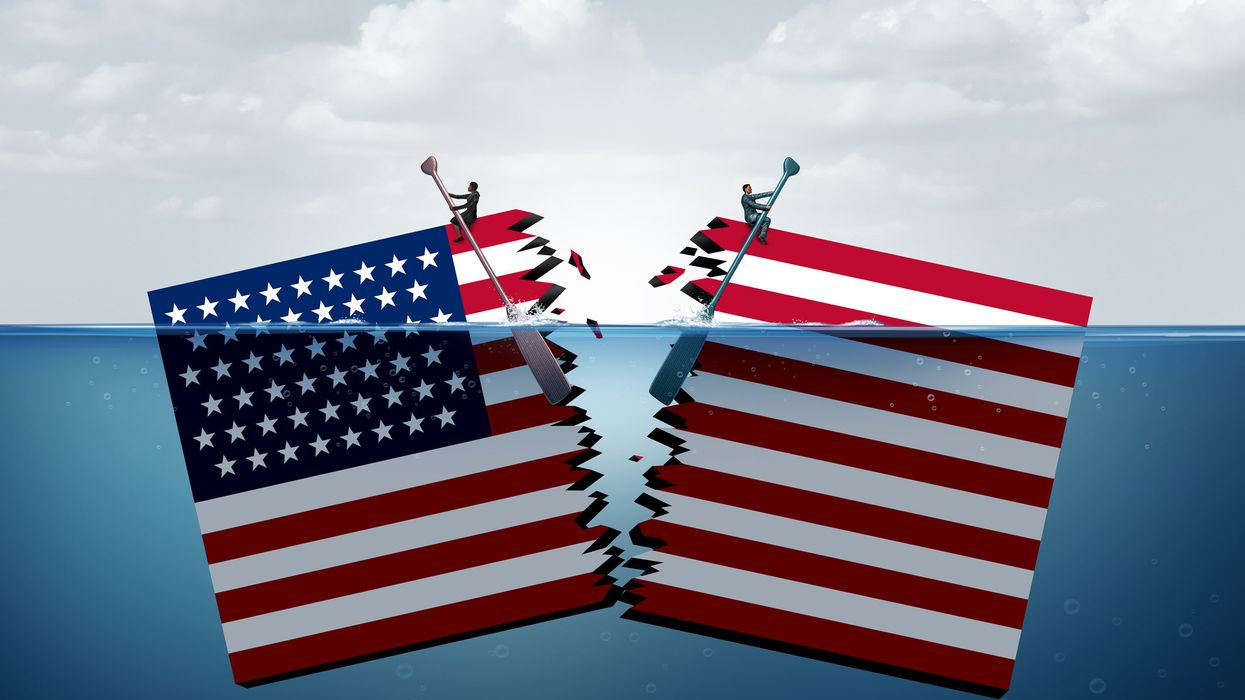McIntosh is president of the Institute for Cultural Evolution, a Colorado think tank focused on the cultural roots of America's political problems, and author of "Developmental Politics: How America Can Grow Into a Better Version of Itself" (Paragon House).
Vox co-founder Ezra Klein's new book, "Why We're Polarized," has helped refocus the nation's attention on the forces dividing our society. While the debate continues over which of the many contributing factors are most decisive, all commentators agree that hyperpolarization is an existential threat to American democracy.
Our constitutional system was designed with compromise as its cornerstone. But compromise has now become a dirty word. Over the last few decades, the focus of American politics has shifted from a relatively civil contest over issues and policy to a bitter battle over morality and identity.
Almost every human polity is divided between those who are most concerned about improving what's wrong and those who are more focused on preserving what's right. There's even research showing that the ubiquitous polarity of left and right is heritable: People are born with brains that find one side or the other more congenial, although life experiences can still influence where they end up. Yet while some degree of polarization is natural and inevitable, our current state of hyperpolarization is unprecedented in the modern era. And this is because we're fighting over something bigger and more important than politics alone. Our current struggle is really about the larger meaning of American culture overall.
Analyzing this problem through a cultural lens reveals how American society has become "stretched out" as a result of its own development.
The progressive culture that first emerged in the 1960s has now come to control many key American institutions. While our politics remain divided between two major parties, our culture is now divided into three major worldviews: the mainstream worldview of modernity, the socially conservative traditional worldview, and "the progressive postmodern worldview."
Polarization is no longer limited to left and right. The rise of Sen. Bernie Sanders in the race for the Democratic presidential nomination, to cite only one recent example, reveals polarization on the left between modernity and progressivism.
The divisive impact of progressive culture, however, is downplayed by many leading progressives. In a commendable effort to fashion an empirical and predictive model of polarization, Klein grounds his analysis in social science research. Although he identifies a variety of contributing factors, he ultimately concludes that the changing demographics of race is the primary cause of hyperpolarization. Yet while partially true, this racial explanation doesn't get at the cultural roots of America's poisoned politics.
Recent research from the Hidden Tribes report and the ongoing work of the University of Michigan's World Values Survey confirm the rise of progressive culture. But while useful for understanding the problem of hyperpolarization, social science's value-neutral stance precludes it from providing a solution.
To remedy this debilitating problem, we need political philosophy. Like the subject of ethics, the subject of values — which are the basis of culture — can only be adequately understood from a philosophical perspective. By using political philosophy, we can see how America's national schism is actually resulting from the uneven development of our culture.
And once we recognize how polarization is being caused by our own growth, the solution becomes evident: We need to grow further.
Cultural maturation, however, is not simply a matter of becoming more progressive. Indeed, it's the emerging pathologies of progressivism itself — its anti-modernism and reverse patriotism — that are exacerbating our social discord.
In order to overcome hyperpolarization, we need to foster the growth of "post-progressive" culture. A post-progressive political perspective can see how all three major American worldviews — modernism, traditionalism and progressivism — each include enduring values that our society needs, as well as accompanying pathologies that we must work to overcome. While this emerging perspective affirms progressive values such as environmentalism and greater inclusion, it transcends progressivism by affirming the legitimacy and ongoing necessity of modernist values and traditional values as well.
Liberal elites are largely blind to the threat that progressivism poses to America's historically established culture. And this causes them to misdiagnose the underlying forces that are roiling America's culture war. While racism is certainly a factor, the millions of Americans of good sense and good faith who nevertheless voted in 2016 for Donald Trump did so because of their perceived need for a "cultural bodyguard" — someone who could protect them from progressivism's ongoing attack on their values.
From a post-progressive perspective, however, the solution to hyperpolarization does not involve vilifying or jettisoning progressivism. The rise of progressive culture represents an important step in the evolution of American society. But the disruptive effects of this cultural emergence are now pressuring us to take the next step in our social evolution.
And this next step will be found through an inclusive new political stance that can recognize the interdependence of America's three major worldviews, and thereby affirm the full spectrum of positive American values.



















Trump & Hegseth gave Mark Kelly a huge 2028 gift